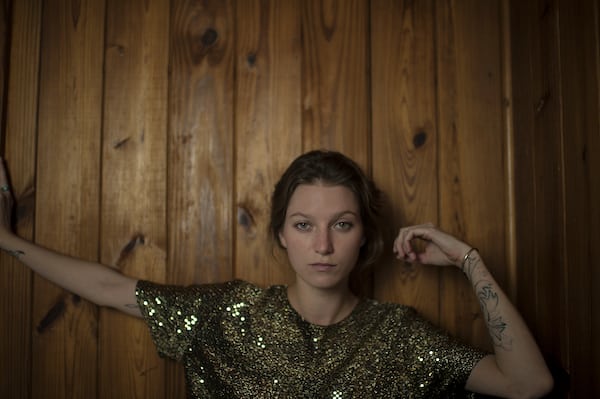Carson McHone has always been a keen observer. As a kid, she was always watching and reflecting on the world around her. Often, as a way of making sense of what she saw, she'd write about it. It's a skill that served her well when she began performing around her hometown of Austin, Texas in the city's bars and honky tonks, places where country songs are not only sang, but often born.
"I would find myself hanging out in places and taking a backseat and just sitting in the corner and watching things happen. Doing that in a bar, you see things in the shadows that, from a young age, you realize, oh, this is not a party all the time. People are here for a lot of different reasons." McHone tells Wide Open Country. "It made me aware of the danger of sort of losing yourself in that. I think it's a constant struggle for a lot of people who make this their career. I think in a way, it was really good for me to grow up in that scenario where I was allowed into these spaces that are really for adults and I was allowed to see this stuff unfold inside of me."
McHone's unflinching observations are on brilliant display on her new album Carousel (out on Oct. 26 on Nine Mile Records). Produced by Mike McCarthy (Spoon, Patty Griffin, Heartless Bastards), the record is a summation of McHone's career so far.
Growing up in Austin as the child of music-lovers, McHone was surrounded by the lyricism of Blaze Foley, Lucinda Williams, Guy Clark and Townes Van Zandt, to name a few.
"These were people who were playing constantly in the house or in the car and those are the sounds I grew up with," McHone says.
McHone's early music education featured writers who didn't shy away from harsh realities. The same honesty is shown throughout Carousel, particularly in album standout "Sad," which describes sadness as a tangible thing that grabs ahold of all of us.
"There is no shadow without the light," McHone sings. "There is a sadness both day and night."
"In the singer-songwriter world we're always being self-deprecating and saying 'Ok, well here's another sad song,'" McHone says, laughing. "I've been criticized before for that. Not necessarily for the craft, but for sort of wallowing in something bleak. I think artists do that sometimes. They sort of dig for something that's in them."
McHone says the tune represents the freedom in acknowledging that we're all susceptible to battles with darkness.
"I hope that it touches on the fact that if you ignore those sorts of dark corners in your life that you see or that you experience and you don't admit to them, it can be worse," McHone says. "If you can be empathetic to somebody else's sadness and darkness, it's actually helpful."
Read More: Hear the Self-Aware Ache of Carson McHone's 'Sad'
The gorgeous "Drugs" wrestles with addiction and co-dependency, while the rousing shuffler "Lucky" hides pain behind the veneer of the supposed serenity of a one-sided, casual relationship.
"Ain't it sweet, when I buy all your cruel, cruel lies," McHone sings. "Ain't you lucky, Oh ain't you lucky, babe/ Lucky, that I love being lonely."
Barroom weeper "Dram Shop Gal" has long been a staple of McHone's catalog. The tune gets an update here, as does the breathtaking "How 'Bout It." Both songs were included on McHone's 2015 debut Goodluck Man.
McHone says she wanted to re-record some of her older songs for the album in order to give them a new life and introduce them to a larger audience.
"It really was healthy for me creatively and emotionally to take those songs kind of out of context, out of the space where they were created or came to be, which was Austin," McHone says. "The lyrics haven't changed, but sometimes the meanings change over time. They kind of ended up being new songs."
McHone says revisiting old songs and stories with a new outlook and fervor ties in with the album's theme of going around again.
"The title is 'Carousel' because one of the songs that we did not re-cut for this album was called 'City Cry.' There's a lyric in there that says 'Like pennies to a wishing well, I'll ride this carousel, but the painted ponies never change their place' and when I wrote that I was sort of alluding to this phrase, or what we call Austin sometimes — 'the velvet rut,'" McHone says. "You can get comfortable in this town and get by and wake up 40 or 50 years later and realize that you've been doing the same thing your whole life. You never went anywhere. It was maybe great, but you never actually did anything. I think that's always kind of in the back of my mind."
With Carousel, McHone has proved that she's moving beyond the perimeter of her hometown while still revisiting the spaces that shaped her, shining light in the darkness and capturing hard truths along the way.
Carson McHone is currently on tour across the U.S. For a full list of dates, visit here.
Now Watch: Underrated Country Love Songs of the '90s



